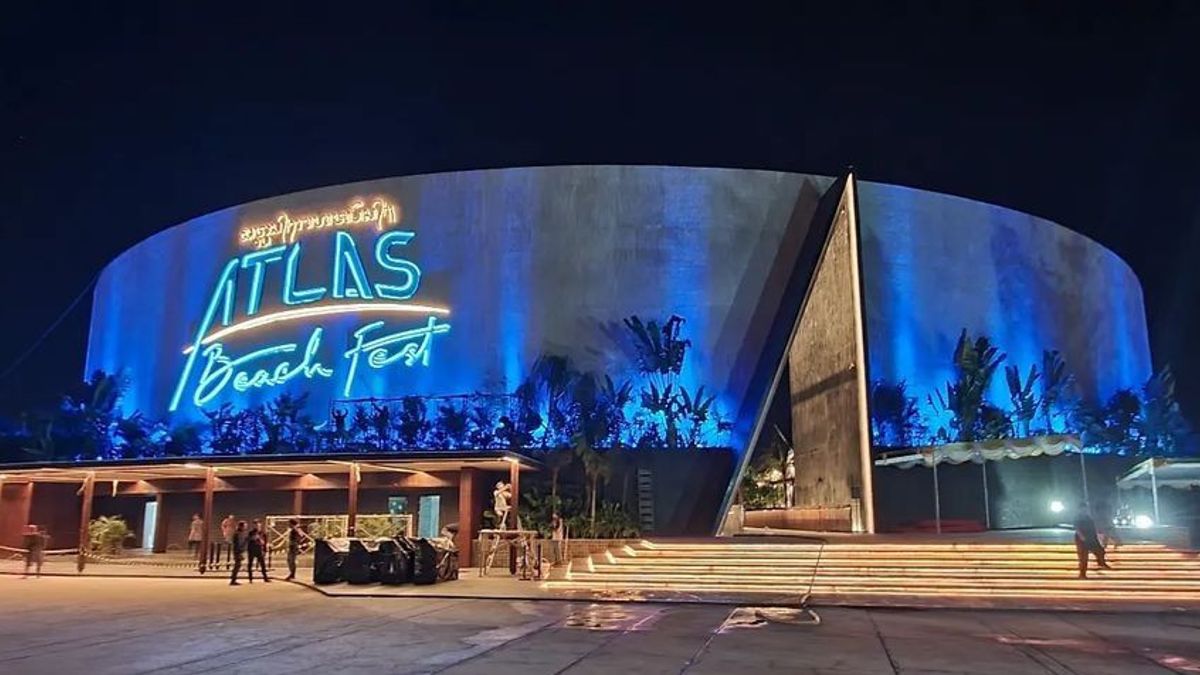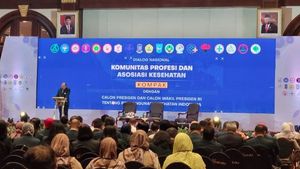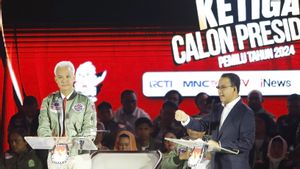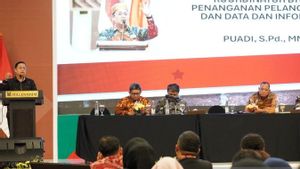JAKARTA The latest increase in entertainment tax rates has made entrepreneurs scream. A number of experts say this policy can have a negative impact on the tourism sector, potentially increasing the unemployment rate.
Misuh-minuh terkait pajak hiburan yang naik menjadi minimal 40 persen hingga 75 persen diperbincangkan publik belakang ini. Regulasi tersebut tertuang dalam Undang-Undang Nomor 1 Tahun 2022 tentang Hubungan Keuangan Antara Pemerintah Pusat dan Pemerintah Daerah, yang mengatur ketentuan tariff pajak untuk jasa art dan hiburan. Ada 12 kategori jasa art dan hiburan.
In Article 55 paragraph (1) letter (I), the government groups discotheques, karaoke, nightclubs, bars, steam/spa showers that are included in it.
For its implementation, the central government has submitted a decision on the amount of tax rates in each region to the regional governments and DPRD.
Inul Daratista, a dangdut singer who also has a karaoke business, expressed her disappointment regarding this entertainment tax rate on Instagram social media. The same thing was also done by the famous lawyer Hotman Paris Hutapea, who has a nightclub business.
So far, the DKI Jakarta Provincial Government has changed its tax rates through Regional Regulation Number 1 of 2024 concerning the Entertainment Tax. Prior to the amendment to the Law, taxes for discotheques, karaoke, nightclubs, and bars in Jakarta were 35 percent. But now the Provincial Government and the DKI Jakarta DPRD agree that the tariff has increased to 40 percent.
According to the Director of Regional Taxes and Regional Retribution of the Directorate General of Fiscal Balance (DJPK) of the Ministry of Finance, Lydia Kurniawati Christyana, since last year there have actually been 177 regions that have applied tax rates for this type of entertainment business by 40 percent to 75 percent of the total 436 regions, including Siak Regency, East Ogan Komering Ulu, East Belitung, Lebak, and Grobogan.
Meanwhile, Bali, which is a tourist area, is still delaying the implementation of the latest tax rates because it is still waiting for the results of the judicial review.
Most entertainment entrepreneurs scream at this latest tax rate because it is considered not to side with the tourism industry sector, which is slowly rising after the pandemic.
Regarding the concerns of entrepreneurs in the entertainment industry, Lydia tries to cool it. According to him, one of the reasons the government applies entertainment tax lower limits on discotheque services to spas is because these services are classified as special entertainment services. Lydia said, discotheque services, karaoke, nightclubs, and spas are not enjoyed by the general public, so special treatment of these activities is needed.
Not all entertainment tax rates increase based on this latest regulation. Lydia mentioned that the law actually reduces taxes for arts and other entertainment services to a maximum of 10 percent. In fact, in the previous law, namely Law Number 20 of 2009, the tax is at least 35 percent.
The reduction in tax rates applies to film viewing service providers, performances of arts, music, dance, beauty pageants, bodybuilding contests, exhibitions, circus shows, acrobatics, magic, horse racing, scarcity games, sports, water ride recreation, ecological rides, educational rides, cultural rides, massage parlors, and reflection parlors.
Art and entertainment services for the promotion of traditional culture are exempt from these regulations and are free of tax.
Director of CelIOS (Center of Economic and Law Studies) Bhima Yudhistira considers the increase in entertainment tax rates to be at least 40 percent to 75 percent potentially triggering various problems. Starting from the possibility of efficiency carried out by entertainment service owners so that it can have an impact on unemployment, to the escape of tourists both from within and outside the country to choose other countries as tourist destinations.
"Even though the tourism sector has just recovered from the pandemic and has not been able to recover equally before the pandemic. This means that there is still a need for stimulus, it requires incentives, especially to bring in both domestic or foreign tourists," said Bhima to VOI.
"In other countries, after the pandemic they provide stimulus by cutting taxes or entertainment levies, both central government policies and local governments, such as in Thailand for example," Bhima added.
Bhima said, with an entertainment tax of at least 40 percent to 75 percent, instead of increasing local revenue (PAD) but actually reducing PAD because many business actors are closed and consumers are also unable to afford it at high costs.
"The impact must be seen again, the government should have a simulation of how the impact of tax increases on economic growth on the recovery of the tourism sector, and its effect on potential unemployment before issuing policies," said Bhima again.
Contacted separately, public policy observer Agus Pambagio is skeptical of the increase in entertainment tax rates. Not without reason, according to Agus, tax flows have always been a big problem in Indonesia. He highlighted tax evaders who did not receive the appropriate punishment.
"The state is indeed a tax robber, but tax and corruption evaders by tax people are still rampant and the handling is gray, aka unclear," Agus said via text message to VOI.
"Not to mention the tax results to build infrastructure are also corrupted," he continued.
SEE ALSO:
On the other hand, the Executive Director of the Pratama-Kreston Tax Research Institute (TRI) Prianto Budi said the service sector which was subject to an increase in tax rates was reasonable because it was considered a form of luxury. With a special consumer target, Prianto believes that the government wants to control the negative impact of these entertainment services.
However, he also understands the objections and concerns of business actors. This tax rate will be borne by consumers so that they have to pay more expensively. This could have an impact on reducing the number of consumers in the service sector.
The English, Chinese, Japanese, Arabic, and French versions are automatically generated by the AI. So there may still be inaccuracies in translating, please always see Indonesian as our main language. (system supported by DigitalSiber.id)


















